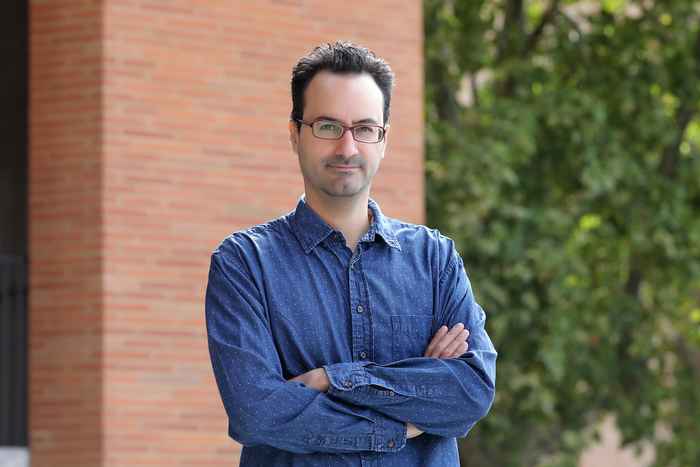The Proud Generalist Research Institute
Research Fellow round-off - Jorge Pena
28 December 2022

Jorge moved from Colombia to Switzerland in 2005 to study electronics engineering, completing a PhD in mathematics applied to the social sciences and establishing a love for evolutionary game-theory and cultural evolution.
“This [transition to Switzerland] led me to transition from engineering to the social sciences.”
After various post doc positions in both Switzerland and France, he settled into a position at Toulouse IAST, an institute of advanced studies specialising in quantitative social sciences.
Focus-friendly but eventful, IAS has you covered
Peña moved to Amsterdam to accompany his partner on a post-doc position at the Centre for Research in Experimental Economics and Political Decision Making (CREED). After finding the Univeristy of Amsterdam - Institute for Advanced Study (IAS), an institute similar in scope to IAST, where he worked in France, he became interested in joining one of their research tracks. As he explains: “Each institute has a different approach. Yes, they are all interdisciplinary, that is their commonality, but their focus can be on a different subset of disciplines or methodologies. IAS focuses on complex systems, that is its common trend. Because of this, compared to IAST, you have lots of people from the hard sciences.”
Along side this, Jorge was pleasantly surprised by the theme structure IAS follows, where organisers and members of each theme gather on different days of the week for informal seminars and events. “The fact that this [seminars and events] runs in parallel to fellows running their own [private] seminars, workshops, and events keep the institute alive.”
What is great about IAS from Jorge’s perspective is that they run both types of events in parallel. This meant that Jorge was able to decide to focus on his project and his project alone. “This set up for me has been what I wanted: to focus on my project. And the location is amazing, I mean, look at that!” he says, pointing at a canal visible from the window. “The facilities are really good. The complementary lunches are great and incentivise fellows to gather together and meet.”
Indirect reciprocity and social evolution
Peña will be at IAS until February, working with two other research fellows in Amsterdam. Their focus is on applied mathematics to biology and social sciences and the evolution of social behaviour. For the next two months Peña will look into the evolution of genes responsible for social behaviour. “[The research will be] how the genes or phenotypes for behaving socially evolve. Essentially looking into mechanisms in the evolution of cooperation...how can you explain cooperation when you have conflicts of interest and the tooth in claw of evolution.”
Social evolution is a subfield of behavioural ecology. Peña explains how you can study this via various methods, whether its field work or experimentation with ecological subjects. Peña on the other hand builds mathematical models, translating real-world assumptions into maths.
At IAS, his aim is to model indirect reciprocity, or reputation based cooperation. “The idea is that there is an incentive in individuals of a population, even if individuals will not interact with each other again...with the assumption that behaviour is influenced by the reputation ones behaviour manifests. I act nice to you, and maybe I expect some retribution...but now imagine individuals only interact once with each other, there is no incentive for them to be nice to each other.”
Jorge is glad to have had the opportunity to work in an institute similar enough to that of his new home town of Toulouse (the IAST), but different enough to have challenged and refined his interests and experience of what an institute of advanced studies can be.